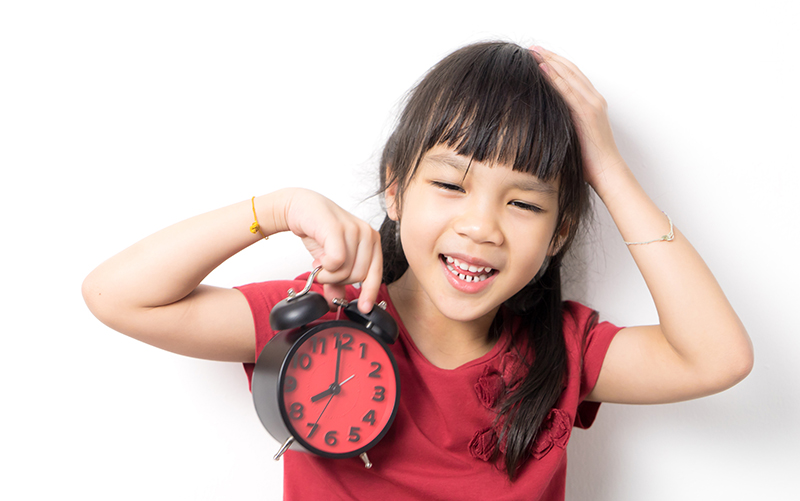Families For Life | Going to School: Practical Tips

DID YOU KNOW?
Playing with pasta pieces, especially macaroni, can be an excellent way to boost your child's acquisition of fine motor skills!
READ MORE

Is your child going to school for the first time? Here are some practical tips to help you and your child ease into the day-to-day routine of school. There might be as many new things for you to learn as there are for your child!
School mornings
Getting children ready for school in the morning can feel overwhelming at first, but it does get easier with some discipline and practice. A consistent routine will help everyone get organised in the morning.
You might like to read more about school morning routines.
School drop-offs and pick-ups
It’s good to try getting to school well before the bell so you can see that your child is settled before you leave. If your child feels rushed in the morning, it might make it more difficult for her to settle into the school day.
By the end of the day your child will be tired and looking forward to getting home as soon as possible or perhaps to a friend’s place to play. If you’re on time to pick up your child, he’ll feel more secure. And if you’re early for pick-up, it gives you a chance to meet other parents, and makes organising playdates easier.
It’s worth checking that your child has everything she needs before you leave for school in the morning, and before you come home at night. This can save on upsets at home and at school when your child can’t find her special pencil box or favourite book.
Clothing
Organising your children’s clothing the night before school can save a last-minute rush in the morning. You might also need to pack alternatives in his bag in case the weather changes – for example, a raincoat or jacket.
Name labels mean your children won’t lose everything they own – only some things!
School lunches and snacks
A healthy lunch and snack helps your child stay alert and meets his energy needs during the day. Many schools have healthy eating policies, so it’s a good idea to check your school’s policy.
Water is the healthiest drink for children. A bottle of water is better for your child than fruit juice.
If your child needs medication at school, you need to authorise her teacher to administer it under strict guidelines.
Problems at school
If your child has any problems at school it’s best to speak to the teacher as soon as possible, whether by phone or in person, to stop the issue getting worse. Try to arrange a meeting for a time you won’t be interrupted by other children or parents.
School safety rules
Your child will need to know where he can play at school and which areas might be out of bounds. Most schools also have rules about playground behaviour.
Special days
Schools often hold special events. These can be highlights of the school year for children. It helps children do better at school if mums, dads and other caregivers support and attend these events. If you can’t attend a special event, you might like to ask another adult in your child’s life to go instead.
Additional needs
Meet with the principal before school begins to discuss your child’s needs. The school will look for ways to accommodate these needs.
Here are some issues you could think about and discuss with the principal:
Does the school have experience with children with additional needs?
Does your child qualify for funding, and what do you need to do to apply for this?
What are the class sizes?
How can the curriculum be modified to suit your child?
What will your child do if she can’t participate in certain activities?
What times will your child need additional support?
What supervision and security can the school provide, especially outside?
How can the school support social interactions with other children?
Communication between school and parents
Your child’s education is a responsibility shared between you and your child’s school. Good communication between school and home will really improve your child’s experience.
There are lots of formal ways to make contact with the school, including:
information evenings
newsletters
notices
You can just as easily pop in for a quick chat with your child’s teacher before or after school. You might want to check that the teacher is free first or ask the teacher to suggest a good time to talk.
Children can get upset if they’re late for an excursion or event, so it’s a good idea to check their bag for notes each day. Many schools have a consent form for parents to sign for excursions and other school activities.
Let your school know if your child needs special attention at any time – for example, if there have been problems at home, a death in the family or he has been sick. Likewise, if he has just won a competition or done well in a sport, let the school know so they can encourage him.
© raisingchildren.net.au, translated and adapted with permission
Explore more